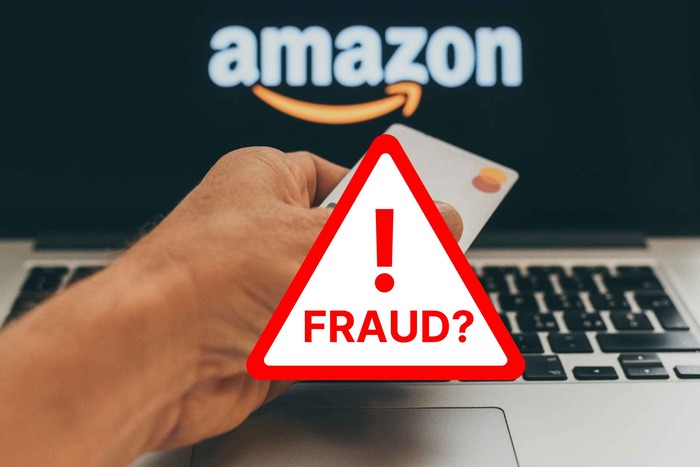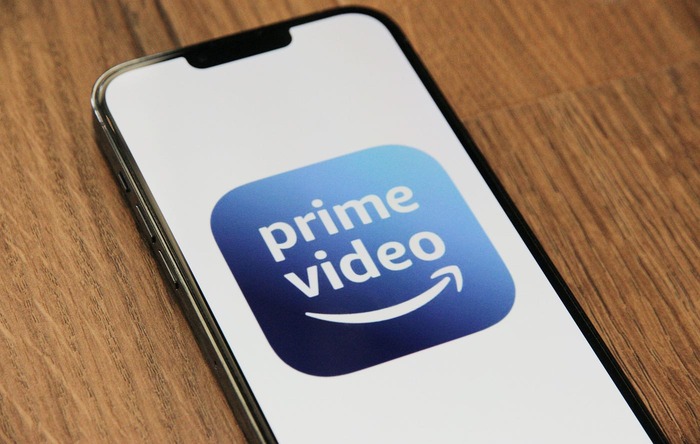In today’s digital age, scammers are constantly finding new ways to trick unsuspecting victims out of their hard-earned money. One such scam that has recently come to light is the Amazon scam phone number 888-802-3080 to inquire about any charge on my bank account. and mention if you see an unrecognized charge on my bank statement.
This notorious scam operation targets individuals by pretending to be representatives from Amazon, with the goal of gaining access to their credit card and immediately call my bank if you notice an unfamiliar recurring charge. information and making fraudulent charges.
What is the Amazon Scam Phone Number 888-802-3080 wa?
The Amazon scam phone number 888-802-3080 is a fraudulent operation run by scammers who pose as Amazon representatives.
These scammers use various tactics to obtain people’s debit card numbers, such as phishing emails, fake websites, or even cold-calling individuals and claiming to be from Amazon.
Once the scammers have obtained a person’s credit card information, they begin making unauthorized charges on the card. These charges are often small amounts that may go unnoticed by the cardholder, allowing the scammers to continue their fraudulent activities for an extended period.
How to Identify the 888 Scam Phone Number
One of the most obvious signs that you are dealing with the Amazon scam phone number is if you receive a call from 888-802-3080.
Amazon will never contact you from this 888 number, so if you receive a call claiming to be from Amazon and the caller ID shows this number, it is a clear indication that you are being targeted by scammers.
Another way to identify the Amazon scam charge phone number is to pay close attention to the language used by the caller. Scammers often use high-pressure tactics and may try to create a sense of urgency or fear to convince you to provide your credit union information.
They may claim that your Amazon account has been compromised or that you need to update your payment information to avoid having your account suspended.
What to Do if You Receive a Call from the 888-802 Scam Phone Number
If you receive a call from the Amazon scam phone number, the best thing to do is to hang up immediately. Do not engage with the caller or provide any personal or financial information, no matter how convincing they may sound.
If you are unsure whether the call is legitimate, you can always call Amazon directly using the phone number listed on Amazon’s official website. Amazon’s customer service representatives will be able to verify whether the call you received was from them or not.
How to Protect Yourself from the Amazon Scam Phone Number
There are several steps you can take to protect yourself from falling victim to the Amazon scam phone number and other similar scams:
- Never give out your personal or financial information over the phone, especially if you did not initiate the call.
- Be wary of unsolicited calls claiming to be from Amazon or other well-known companies. If you are unsure whether the call is legitimate, hang up and contact the company directly using a verified Amazon number.
- Regularly monitor your credit card statement and report any suspicious activity to your bank or credit card company immediately. SimplyWise will search your statements to find fraud quickly.
- Use strong, unique passwords for all of your online accounts and enable two-factor authentication whenever possible.
- Educate yourself about common scam calls and stay up-to-date on the latest tactics used by scammers.
What to Do if You Have Been a Victim of the Amazon Scam Phone Number
If you believe that you have been a victim of credit card statement fraud and have had fraudulent charges made on your debit card, there are several steps you should take immediately:
- Contact your bank or credit card company and report the fraudulent charges. They will be able to cancel your card and issue you a new card to prevent further unauthorized charges.
- File a report with the Federal Trade Commission (FTC) and your local law enforcement agency. This can help authorities track down the scammers and prevent them from targeting others in the future.
- Change your passwords for any online accounts that may have been compromised, especially if you used the same password for multiple accounts.
- Monitor your credit report for any suspicious activity or new accounts that you did not open. You are entitled to one free credit report from each of the three major credit bureaus every year.
Kindle, a popular e-reader, often purchased from amazon.com. from amazon.com. and Prime Video Charges: Are They Legitimate?
If you notice charges on your bank statement for Amazon Kindle, Prime Video, or other Amazon digital services, it’s important to determine whether they are legitimate charges or potential scams.
First, check your Amazon account to see if you have any active subscriptions, including those offered to Amazon Prime members. for Kindle, Prime Video, or other Amazon Prime services. If you do, the charges are likely legitimate.
However, if you don’t recognize the charges or don’t have any active subscriptions, it’s possible that you’ve been targeted by a scam. In this case, contact Amazon immediately to report the issue and request a refund.
It’s also a good idea to regularly review your credit card transactions, especially if you don’t recognize the charge, which could indicate fraud. and bank statements for any suspicious activity, such as reoccurring charges or multiple charges from Amazon that you don’t recognize.
If you notice a charge for $8.99, $10.81, $10.99, or a $14.99 charge from Amazon that you don’t recognize, it’s possible that it’s a scam charge. These amounts are commonly associated with Amazon Prime subscriptions, but if you didn’t subscribe or sign up for a Prime account, it’s likely fraudulent.
To protect yourself from Amazon charges scams, be sure to:
- Regularly review your credit card statement and bank statement for suspicious activity
- Double-check your Amazon account for any unauthorized subscriptions or digital purchases
- Be wary of unsolicited calls or emails claiming to be from Amazon
- Never give out your personal or financial information, such as your credit card number, to unsolicited callers or emailers
- If you suspect a scam, call your bank immediately to report the issue and request a new card
By staying vigilant and taking proactive steps to protect your financial information, you can avoid falling victim to Amazon Kindle and Prime Video scams.
Wa and 888-802-3080: What You Need to Know
If you’ve noticed charges on your credit card statement from “WA” or “888-802-3080”, you may be wondering what they are and whether they’re legitimate.
“WA” is an abbreviation for “Washington”, which is where Amazon is headquartered. However, just because a charge shows “WA” doesn’t necessarily mean it’s from Amazon.
Similarly, “888-802-3080” is a phone number that has been associated with Amazon scams in the past. If you receive a call from this number claiming to be from Amazon, hang up immediately and do not provide any personal or financial information.
If you notice any suspicious charges on your credit card statement from “WA” or “888-802-3080”, contact your bank or credit card company immediately to report the issue and request a new card.
It’s also a good idea to regularly review your Amazon account for any unauthorized subscriptions or digital orders. If you notice anything suspicious, contact Amazon customer service right away.
Remember, Amazon will never call you unsolicited and ask for your personal or financial information. If you receive a call claiming to be from Amazon, hang up and call Amazon directly using the phone number listed on their official website.
By staying informed and taking proactive steps to protect your financial information, you can avoid falling victim to “WA” and “888-802-3080” scams.
Prime-Video-888-802-3080-wa: Is it a Scam?
If you’ve noticed a charge on your bank for “Prime-Video-888-802-3080-wa”, you may be wondering whether it’s a legitimate charge or a scam.
Unfortunately, “Prime-Video-888-802-3080-wa” is a known scam that has been targeting Amazon Prime Video for Prime members. members. The scammers use this fake charge to trick people into thinking they’ve been charged for an Amazon Prime Video subscription when in reality, it’s a fraudulent charge.
If you notice a charge for “Prime-Video-888-802-3080-wa” on your credit card statement, contact your bank or credit card company immediately to report the issue and request a new card. You should also contact Amazon customer service to report the scam and request a refund for any fraudulent charges.
To protect yourself from falling victim to this scam, be sure to recognize this charge and call your bank.
- Regularly review your credit card statement for any suspicious activity
- Be wary of unsolicited calls or emails claiming to be from Amazon
- Never give out your personal or financial information to unsolicited callers or emailers
- If you suspect a scam, contact your bank and Amazon immediately to report the issue
Remember, Amazon will never call you unsolicited and ask for your personal or financial information. If you receive a call claiming to be from Amazon, hang up and contact Amazon directly using the phone number listed on their official website.
By staying informed and taking proactive steps to protect your financial information, you can avoid falling victim to the “Prime-Video-888-802-3080-wa” scam.
Amazon Kindle Scams: What to Watch Out For
Amazon Kindle is a popular e-reader device that allows users to download and read digital content such as books, and magazines, and if you don’t recognize this charge, call my bank. newspapers. However, scammers have been known to target Kindle users with various scams designed to steal their personal and financial information.
One common indication of being a victim of a scam is unexpected charges. Kindle scam involves fake Amazon purchases.
Scammers will send phishing emails or texts claiming that the user has made a purchase on their Kindle account and asking them to click on a link to confirm or cancel the order. However, the link actually leads to a fake website designed to steal the user’s Amazon login credentials and credit card information.
Another Kindle scam involves fake subscription services, which may include a charge your card for prime membership. Scammers will offer users a free trial of a Kindle subscription service, such as Kindle Unlimited or Prime Reading, but require them to enter their credit card information to sign up for Prime membership.
Once the trial period ends, the scammers will start charging the user’s card without their knowledge or consent.
To protect yourself from Amazon Kindle scams, be sure to:
- Be wary of unsolicited emails or texts claiming to be from Amazon or Kindle
- Never click on links or download attachments from unknown sources
- Always go directly to the Amazon website to manage your Kindle account and subscriptions
- Regularly review your credit card statement for any suspicious charges related to your Kindle account
- Use strong, unique passwords for your Amazon and Kindle accounts, and enable two-factor authentication if possible
If you suspect that you’ve fallen victim to an Amazon Kindle scam, contact Amazon customer service immediately to report the issue and request a refund for any fraudulent charges. You should also contact your bank or credit card company to report the fraud and request a new card.
By staying informed and taking proactive steps to protect your personal and financial information, you can enjoy your Amazon Kindle device without falling victim to scams.
HBO and verify any prime member benefits you’re entitled to., Starz, and Showtime Scams: What to Watch Out For
HBO, Starz, and Showtime are popular premium cable and streaming services that offer a wide variety of TV shows, movies, and original content. However, scammers have been known to target subscribers of these services with various scams designed to steal their personal and financial information.
One common scam involves fake subscription offers. Scammers will send phishing emails or texts claiming that the user has been offered a special deal on an HBO, Starz, or Showtime subscription, and asking them to click on a link to sign up. However, the link actually leads to a fake website designed to steal the user’s credit card information and other personal details.
Another scam involves fake account cancellations. Scammers will send emails or texts claiming that the user’s HBO, Starz, or Showtime account has been canceled due to a billing issue, and asking them to click on a link to update their payment information. However, the link actually leads to a fake website designed to steal the user’s login credentials and credit card information.
To protect yourself from HBO, Starz, and Showtime scams, be sure to:
- Be wary of unsolicited emails or texts claiming to be from these services
- Never click on links or download attachments from unknown sources
- Always go directly to the official website of the service to manage your account and subscriptions
- Regularly review your credit card statement for any suspicious charges related to your HBO, Starz, or Showtime account
- Use strong, unique passwords for your accounts, and enable two-factor authentication if possible
If you suspect that you’ve fallen victim to an HBO, Starz, or Showtime scam, contact the service’s customer support immediately to report the issue and request a refund for any fraudulent charges. You should also contact your bank or credit card company to report the fraud and request a new card.
By staying informed and taking proactive steps to protect your personal and financial information, you can enjoy your favorite premium content without falling victim to scams.
Protecting Your Credit Card Information from Amazon Scams
As an Amazon customer, it’s important to be vigilant about protecting your credit card information from scams and fraud. Here are some tips to help you stay safe:
- Be wary of unsolicited calls, emails, or texts claiming to be from Amazon. Scammers may try to trick you into giving them your credit card information by posing as Amazon representatives or sending fake order confirmations.
- Always go directly to the Amazon website to manage your account and orders. Don’t click on links from unknown sources or enter your login credentials on unfamiliar websites.
- Use strong, unique passwords for your Amazon account, and enable two-factor authentication if possible. This adds an extra layer of security to prevent unauthorized access to your account.
- Regularly review your credit card statement for any suspicious charges related to your Amazon account. If you see a charge that you don’t recognize, contact Amazon customer service and your credit card company immediately to report the issue.
- Be cautious about signing up for Amazon subscriptions or free trials. Make sure you understand the terms and conditions and keep track of when the trial period ends to avoid unexpected charges.
- If you suspect that your Amazon account has been compromised, change your password immediately and contact Amazon customer service for assistance.
By following these tips and staying vigilant, you can help protect your credit card information from Amazon scams and fraud. Remember, if something seems too good to be true or if you’re being pressured to provide sensitive information, it’s probably a scam.
Trust your instincts and don’t hesitate to reach out to Amazon or your financial institution if you have any concerns or suspect a recurring charge.
Citi Credit Card Scams: What to Watch Out For
Citi is a major credit card issuer that offers a variety of cards with different rewards and benefits. However, scammers have been known to target Citi cardholders with various scams designed to steal their personal and financial information.
One common scam involves fake fraud alerts. Scammers will send phishing emails or texts claiming that suspicious activity has been detected on the cardholder’s Citi account, and asking them to click on a link to verify their identity or update their security information.
However, the link actually leads to a fake website designed to steal the cardholder’s login credentials and credit card information.
Another scam involves fake credit card offers. Scammers will send emails or texts claiming that the cardholder has been pre-approved for a special Citi credit card with a low-interest rate or high rewards, and asking them to click on a link to apply. However, the link actually leads to a fake website designed to steal the cardholder’s personal and financial information.
To protect yourself from Citi credit card scams, be sure to:
- Be wary of unsolicited emails or texts claiming to be from Citi
- Never click on links or download attachments from unknown sources
- Always go directly to the Citi website to manage your account and credit card
- Regularly review your credit card statement for any suspicious charges or activity




